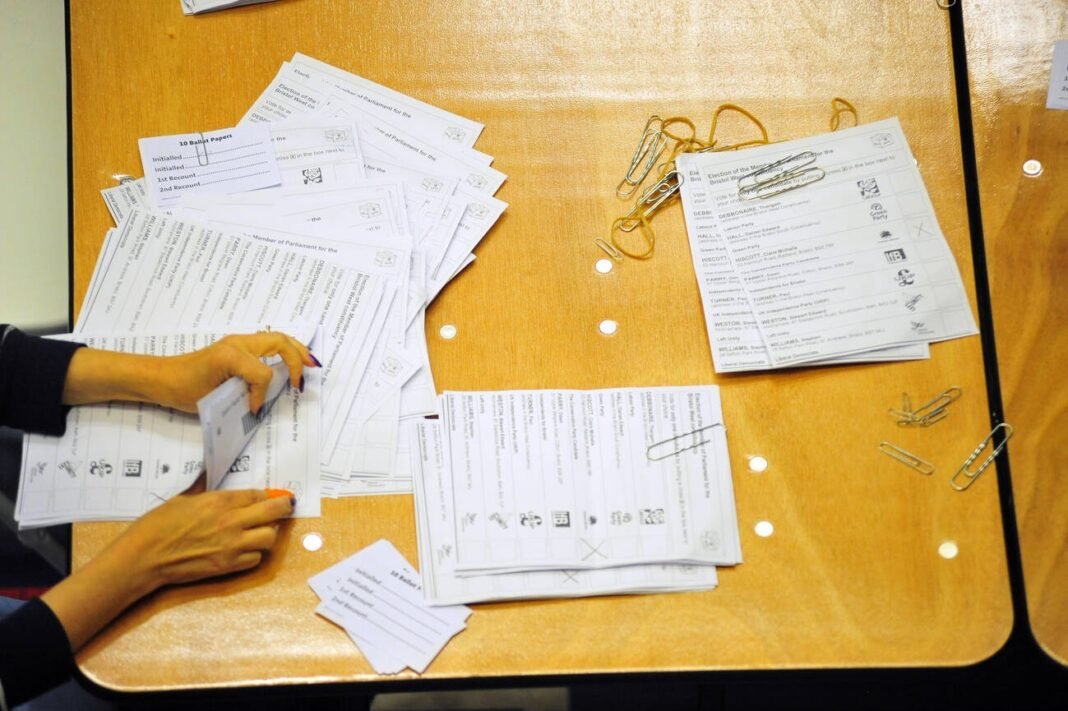On Thursday, July 4, voters in the UK elected members of the House of Commons and a new government. They elected 650 legislators who represent the same constituencies or local areas. The participation rate in the last election in the UK was about 68%. In the general election, the conservatives suffered a heavy defeat. This article will examine the UK general election turnout. It will also examine the popularity of the main British parties and the reasons for the decline in the popularity of the Conservatives.
The process of holding general elections in The UK
A general election is a process that takes place in England, Scotland, Wales, and Northern Ireland to form the House of Commons. The cabinet of the future government will be formed from among the members of the House of Commons. The formation of the next government depends on which of the parties alone or in coalition with other parties will win the majority of seats in the parliament. The number of people eligible to vote in the general election was about 46 million out of the 68 million population of the UK. UK general election turnout has been around 60% with a few percent decrease.
Domination of the Labor Party and the Conservative Party in the electoral system
Conservative and Labor parties have traditionally dominated British politics under the country’s electoral system. This makes it difficult for small parties to gain representation in the UK Parliament. The election situation in the UK was very special during this period. The conservative movement suffered a historic defeat after 4 terms in power. On the contrary, the Labor Party won a surprising victory. Some small parties also won a relatively good number of seats. In the UK parliamentary system, 650 seats belong to the UK (533 seats), Scotland (59), Ireland (18) and Wales (40). The ruling party must have at least 326 seats independently or in the form of a coalition.
Political instability of leaders in the Conservative Party
The general election was held in about 40,000 polling stations, most of which are public places such as schools and meeting halls of neighborhoods. British parties usually change their leaders in every political development, especially in case of defeat in the elections. However, the Conservative Party has chosen five different leaders since 2010 without losing in the elections. David Cameron, Theresa May, Boris Johnson, Liz Truss and Rishi Sunak have been the leaders of the Conservative Party since 2010.
An unprecedented decrease in the number of conservative seats in the UK Parliament
The Conservatives, who have been in power for the past 14 years, won only 121 seats. Since 2010, when the Conservative Party won the parliamentary elections, this party had the parliamentary majority. In the previous UK Parliament, the Conservative Party with 344 seats, the Labor Party with 205 seats, the Scottish National Party with 43 seats, and the Liberal Democrats with 15 seats formed the main parties of the Parliament. The Conservative Party had the majority in the parliament. Conservatives lost most of their seats in the new parliament.
Reasons why conservatives are unpopular among the British
There are many reasons why conservatives are unpopular. Unsettled economic conditions at the macro level and the skyrocketing costs of living, especially after Corona, are among these factors. Also, the chaos of the health care system, which has placed about seven million patients in the waiting line, led to discontent among the conservatives. Social dissatisfactions in the field of border control and immigration and the increasing cost of housing and bank interest rates were other influential factors. In addition to these, the environmental situation, tax rate, and employment situation created bad conditions for the British. These factors forced the Conservative Party to accept a major parliamentary defeat after 14 years of rule.
Prediction of parliamentary election results
Despite the decrease in UK general election turnout, it was a victory for the Labor Party. However, this was not the only event of this election. The most important event was the most historic defeat of the Conservative Party. Polls also showed a decrease in satisfaction with the conservatives. According to the latest election polls, the level of satisfaction with Sunak’s performance had fallen to a very low level of 20 percent. Therefore, the Conservative Party lost most of its seats.
UK general election turnout
UK general election turnout has been decreasing in the past decades. In 1950, 83% participated in the UK parliamentary elections, but this figure was never repeated. The parliamentary elections of 2019 in this country witnessed the participation of 67% of eligible candidates. The participation rate in the last election in the UK was about 68%. UK general election turnout on July 4 was also expected to be between 65 and 69 percent. However, the participation rate was around 60%. The highest participation rate in the UK goes back to the elections of the 1950s when the quorum reached 80%. For a better assessment of the participation rate of the British people, we should note that the participation rate in the sensitive Brexit referendum was about 72%.
The political decline of the Conservatives: the party’s failure to regain public trust
The Conservative Party has been in power since 2010. The Conservatives have been plagued by scandals and weak leadership within the party in recent years. Domestic and economic crises are one of the reasons for this defeat against the Labor Party. The increase in the unemployment rate, inflation, and the decrease in the standard of living of many British citizens have caused public dissatisfaction with the Conservative Party. In addition, the unattractiveness of election programs is one of the factors of this party’s failure. The election programs of the Conservative Party have not been able to cover the immediate needs of society. Many people are disappointed with these programs. In addition, the party’s inability to provide new solutions to old problems has reduced its appeal.

